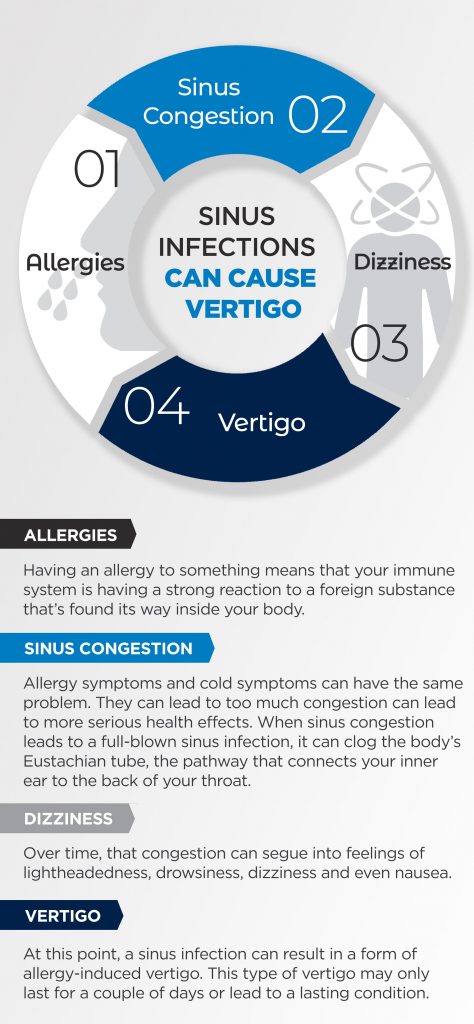
Are Your Allergies Making You Dizzy? Can Allergies Cause Vertigo?
Everyone experiences colds occasionally and almost everyone suffers from allergies from time to time, especially in the spring and fall. But all of that extra mucus can lead to more than an infection, it can also cause vertigo. What’s been dubbed as allergy-induced or sinus-induced vertigo can range from mild to severe, with symptoms such as dizziness, nausea, lightheadedness, and fatigue. Learn more about the surprising connection between sinus infections, allergies, and vertigo.
Allergies and the Power of Histamines
Having an allergy to something means that your immune system is having a strong reaction to a foreign substance that’s found its way inside your body. This substance can come from your food, the pollen in the air, or even pet dander. When your immune system encounters this unfamiliar substance, your body releases histamines to combat these unruly invaders. Histamines actually cause the symptoms that we associate with allergies, such as coughing, sneezing, runny nose, and sinus congestion.
Sinus Infections and the Eustachian Tube
Allergy symptoms and cold symptoms can have the same problem. They can lead to too much congestion can lead to more serious health effects. When sinus congestion leads to a full-blown sinus infection, it can clog the body’s Eustachian tube, the pathway that connects your inner ear to the back of your throat. This pathway helps regulate your body’s sense of balance. A sinus infection will result in your Eustachian tube filling up with mucus and fluid, inhibiting your body’s ability to stay balanced.
From Sinus Congestion to Vertigo Symptoms
Sinus congestion usually feels like your head is about to explode, stuffed with all sorts of excess mucus and fluid. Over time, that congestion can segue into feelings of lightheadedness, drowsiness, dizziness and even nausea. At this point, a sinus infection can result in a form of allergy-induced vertigo. This type of vertigo may only last for a couple of days or lead to a lasting condition.
If this is your first time experiencing vertigo, you might find yourself slipping into episodes of instability from time to time, feeling shaky or as if your surroundings are spinning. A rapid turn of the head or standing up too fast can bring on another wave of symptoms. You might experience a lasting feeling of fatigue. You probably are experiencing vertigo. If these symptoms persist, you should consult your doctor about the best way to treat your sinus or allergy-induced vertigo.
Lasting vertigo symptoms can be a sign of other, more serious health conditions. Your doctor might prescribe a series of medications to help relieve your symptoms. They might also suggest performing a few exercises at home.
 Some people already know they have long-term vertigo problems. Their concern may be that they find sinus infections or allergies can trigger their vertigo symptoms, so they should try to be extra careful to stay free from congestion.
Some people already know they have long-term vertigo problems. Their concern may be that they find sinus infections or allergies can trigger their vertigo symptoms, so they should try to be extra careful to stay free from congestion.
When it comes to reducing your vertigo symptoms, you can always use Di-Vertigo for fast relief of symptoms on the go. Just apply a few drops behind your ears and you can experience relief in just a few minutes.




